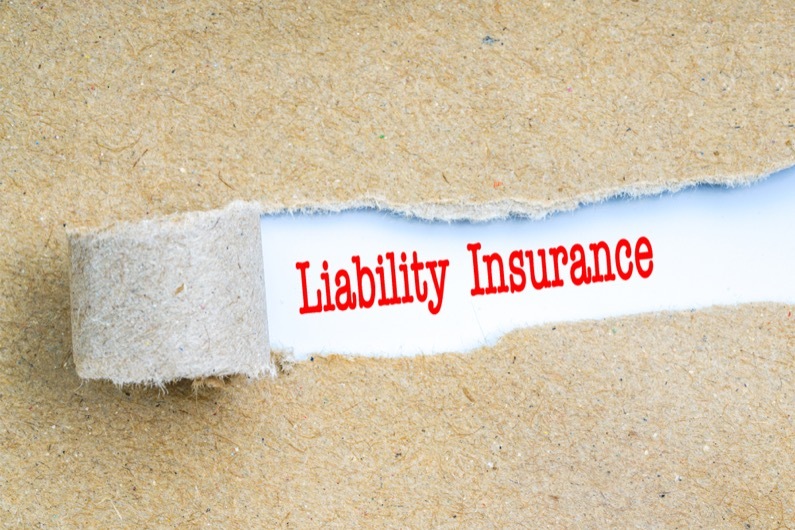General Liability Insurance vs. Business Owners Policy: What’s the Difference?

Running a business comes with its fair share of challenges and uncertainties. As a responsible business owner, ensuring that your venture is adequately protected against unforeseen risks is critical.
Two common options for business insurance coverage are General Liability Insurance and a Business Owners Policy (BOP). While both offer protection, they cater to different aspects of your business's well-being. In this article, we'll delve into the nuances of each to help you make an informed decision for your business's insurance needs.
What Is General Liability Insurance?
General Liability Insurance is a type of insurance that offers protection to businesses and individuals if they are legally responsible for causing harm to others or damaging their property. It's like a safety net that businesses can rely on in case things don't go as planned.
Imagine you own a bakery, and a customer slips and falls on a wet floor inside your shop, injuring themselves. Without General Liability Insurance, you might be on the hook for their medical bills and any legal fees if they decide to sue you. However, if you have this insurance, it can help cover those costs so you don't have to pay everything out of your own pocket.
The specifics of General Liability Insurance, like how much coverage you need and how much it costs, can vary. Different businesses have different levels of risk, so it's a good idea to work with insurance experts who can help you customize your coverage to match your specific needs.
What Does General Liability Insurance Cover?
Here's a breakdown of what this insurance typically covers:
Bodily Injuries
If someone is physically harmed on your business premises or due to your business activities, General Liability Insurance can cover medical expenses, ambulance costs, hospital bills, and even legal expenses if the injured party decides to sue. For instance, if a customer slips and falls in your store or office, sustaining an injury, your general liability insurance can help cover the associated costs.
Property Damage
If your business activities cause damage to someone else's property, whether it's their home, vehicle, or any other physical belongings, General Liability Insurance can help cover the cost of repairs or replacements. For example, if you're a contractor and accidentally damage a client's property while working on a project, this insurance can come to your aid.
Copyright Infringement
General Liability Insurance can also offer coverage in cases of copyright infringement. If your business uses copyrighted material without proper authorization and faces legal action as a result, this insurance can help cover legal defense costs and potential damages awarded to the copyright holder.
For instance, if your marketing materials include images or content that violate someone else's copyright, and you're sued for using their intellectual property without permission, your General Liability Insurance might provide financial support for addressing the claim.
Reputational Harm
This aspect of coverage goes beyond physical injuries. It includes non-physical harm such as defamation (making false statements that damage someone's reputation), libel (defamation in written form), and slander (defamation spoken aloud). If your business activities lead to a lawsuit for any of these reasons, General Liability Insurance can help cover legal costs and potential damages awarded to the injured party.
Advertising Injury
If your business's advertising inadvertently causes harm, such as misleading statements that result in financial losses for another party, General Liability Insurance can provide coverage. This can include situations where your advertisements are accused of violating another business's copyright or trademark.

What Does General Liability Insurance Not Cover?
While General Liability Insurance offers essential coverage for a wide range of situations, there are certain scenarios and risks that typically fall outside its scope. Here are some common exclusions or situations that general liability insurance might not cover:
Employee Injuries and Illnesses
General Liability Insurance does not cover injuries sustained by your employees while on the job. For employee injuries, businesses usually need to have Workers' Compensation Insurance, which is a separate type of coverage designed specifically for workplace injuries.
Auto Accidents
If your business owns vehicles, General Liability Insurance won't cover accidents involving those vehicles. Commercial Auto Insurance is needed for such situations.
Professional Mistake
If your business involves providing professional services, such as consulting or legal advice, and you make mistakes or fail to deliver promised results, these errors are typically not covered by General Liability Insurance. Instead, you would need Professional Liability Insurance (also known as Errors and Omissions Insurance) to protect against claims of professional negligence.
Theft and Damage to Business Property
General Liability Insurance is primarily designed to cover damage to others' property. Damage to your own business property, such as your office space or equipment, typically isn't covered by this type of insurance. Instead, you'd need Property Insurance or Business Owner's Policy (BOP) to safeguard your own assets.
What is a Business Owners Policy (BOP)?
A Business Owners Policy (BOP) is a comprehensive insurance package designed to provide small and medium-sized businesses with a combination of essential coverages in a single policy.
BOPs are especially suited for businesses that have relatively low-risk profiles and want a convenient way to obtain several key insurance protections in one package. This can lead to cost savings and simplified administration compared to purchasing each type of coverage separately.
What Does a Business Owners Policy Cover?
A typical Business Owners Policy includes the following coverages:
General Liability Insurance
General liability coverage within a BOP protects your business against claims of bodily injury, property damage, personal injury, and related legal expenses. If a customer slips and falls in your store, or if your product causes harm to someone, this coverage helps cover medical expenses, legal fees, and potential settlements or judgments.
Commercial Property Insurance
This component covers physical assets owned by your business, such as buildings, equipment, inventory, and furniture. It provides financial protection in case of damage or loss due to events like fire, theft, vandalism, and certain natural disasters. If your business owns or leases a physical space, property insurance within a BOP can help you recover the costs of repairing or replacing damaged property.
Business Interruption Insurance
If your business operations are temporarily disrupted due to a covered event, such as a fire or natural disaster, business interruption insurance helps replace the lost income you would have earned during the interruption. It also covers ongoing expenses like rent and payroll, helping you keep your business afloat while you recover.

Who Needs a Business Owners Policy?
A Business Owners Policy (BOP) is particularly well-suited for small to medium-sized businesses that meet certain criteria. This type of insurance package is designed to provide comprehensive coverage that addresses the common risks faced by many small businesses.
What Coverage Do I Need in Addition to a BOP?
While a BOP provides broad coverage, certain specific risks might necessitate additional policies:
Commercial Auto Insurance
If your business owns vehicles or uses them for work purposes, Commercial Auto Insurance is necessary to cover accidents, injuries, and property damage involving those vehicles.
Professional Liability Insurance
If your business provides professional services or advice, this insurance protects you against claims of negligence, errors, omissions, or inadequate work. It's particularly important for businesses like consultants, architects, lawyers, and accountants.
Workers Compensation Insurance
If you have employees, most states require you to carry Workers' Compensation Insurance. This coverage helps pay for medical expenses and lost wages if your employees are injured or become ill while performing their job duties.
Cost of a Business Owners Policy vs. General Liability Insurance
The cost of a Business Owners Policy (BOP) versus standalone General Liability Insurance can vary based on several factors, including the size and type of your business, location, industry, coverage limits, and the insurance provider you choose. However, here is a general idea of how the costs might compare:
Business Owners Policy (BOP)
A BOP typically bundles several essential coverages together, including property insurance, general liability insurance, and often business interruption insurance. This combined package can offer cost savings compared to purchasing each coverage separately. The cost of a BOP can range from a few hundred dollars to a few thousand dollars per year, depending on the factors mentioned above.
Standalone General Liability Insurance
If you opt for standalone General Liability Insurance, the cost will depend primarily on the coverage limits you choose, the nature of your business activities, the number of employees you have, and other risk factors. The cost of standalone general liability insurance can also range from a few hundred to several thousand dollars per year.
To get an accurate estimate of the cost for your business, it's best to request a quote from a trusted insurance company. They will consider your business's unique characteristics to provide you with tailored pricing. Working with insurance professionals can help you make informed decisions about the types and amounts of coverage you need to adequately protect your business while managing your costs effectively.
How are General Liability Insurance and BOP Different?
General Liability Insurance and a Business Owners Policy (BOP) are insurance coverages designed to protect businesses, but they differ in scope. General Liability Insurance focuses on third-party claims related to accidents, injuries, or damages caused by a business's operations, products, or services. It offers tailored protection against liability risks but typically doesn't cover property or business interruption. It's suitable for a range of businesses, particularly those interacting with customers.
On the other hand, a BOP is a bundled insurance package that combines General Liability Insurance with Property Insurance and often Business Interruption Insurance. It provides a comprehensive solution by covering liability risks, property damage, and loss of income due to covered events. BOPs are designed for smaller businesses with physical assets, offering convenience and potential cost savings through packaged coverage.
Ultimately, the choice between these options depends on a business's specific needs, risk exposure, and desired coverage breadth.

Hotchkiss Is Here To Help! Get An Insurance Quote Today.
Understanding the differences between General Liability Insurance and a Business Owners Policy empowers you to make informed choices for your business's protection. Depending on your business's size, industry, and risk profile, you can opt for the right coverage that aligns with your specific needs.
The best way to start safeguarding your business is to partner with a trusted insurance company like Hotchkiss Insurance. As a reputable business insurance provider based in Texas, Hotchkiss offers tailored solutions that cater to your unique needs.
Whether you're looking for General Liability Insurance, a Business Owners Policy, or other business insurance coverage, Hotchkiss Insurance has got you covered. Visit Hotchkiss Insurance today to get started on securing your business's future.